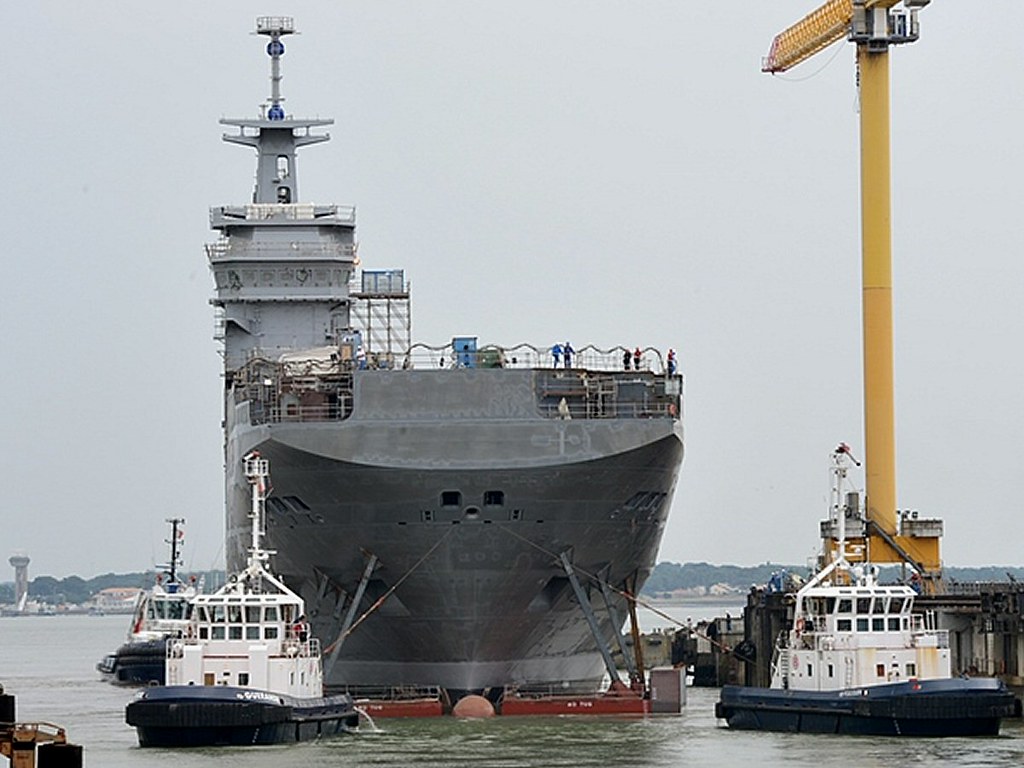India's first aircraft carrier INS Vikrant fades into history
[video=youtube;OLF-fg7h5xU]http://www.youtube.com/watch?v=OLF-fg7h5xU[/video]
Read more at:
even at her end she still looks majestic and proud
[video=youtube;OLF-fg7h5xU]http://www.youtube.com/watch?v=OLF-fg7h5xU[/video]
Read more at:
India's first aircraft carrier INS Vikrant, which was built for the British Royal Navy as HMS Hercules in 1943 and which saw action during the India-Pakistan war in 1971, is being finally broken up after a glorious history of 71 years.
The HMS Hercules, a Majestic-class light fleet aircraft carrier, was built Oct 14, 1943, commissioned in the British Royal Navy in 1945 and bought by India in 1957.
Read more at:
The gigantic vessel with a displacement of 20,000 tonnes, was commissioned in the Indian Navy Feb 16, 1959. It saw action during the 1971 India-Pakistan war and was finally decommissioned Jan 31, 1997.
It served as a maritime museum till 2004 and since then, bitter legal battles were fought for saving INS Vikrant in the past decade, right up to the Supreme Court.
Many proposals, including converting it into a permanent museum for future generations, failed to materialise due to varied reasons, chiefly due to financial constraints.
Save Vikrant Committee chief Kiran Paigankar, who had filed a public interest litigation to save the ship, termed it "a sad day in the country's glorious maritime history".
He said it was unfortunate that the process to expedite the end of INS Vikrant was initiated by the Indian Navy which once considered the vessel its 'pride'.
He, however, expressed hope that if the government intervenes, the ship could still be saved.
"An important chapter of Indian history revolving around INS Vikrant has finally ended. Despite all our efforts, we could not prevent her from breaking up," Paigankar told IANS.
The ship, bought in an incomplete condition, was finally completed after India bought her and formally commissioned in the Indian Navy in March 1961 by then Indian high commissioner to Britain, Vijayalakshmi Pandit.
Built by Vickers Armstrong, the ship's construction was stopped as World War II had ended, and it was later sold to India.
INS Vikrant underwent a four-year-long refitting at Harland and Wolf Yard in Belfast, Ireland, with an angled flight deck and armed with two squadrons of British Seahawks and French Breguet Alize aircraft.
She arrived Nov 3, 1961 to formally join the Indian Navy fleet in the Bombay Harbour, and was received by then prime minister Jawaharlal Nehru and other top officials amidst great fanfare.
INS Vikrant, as she was rechristened after India bought her, saw her finest hour a decade later when she played a significant role in the 1971 war which saw the birth of Bangladesh.
The most powerful ship of the Indian Navy then, she quickly caught the public imagination and became its most famous and popular vessel.
A sleek, 192-metre-long vessel, she had a full load displacement of 20,000 tonnes, a draught of 24 feet, and could sail at a speed of 43 km per hour with a range of 22,000 km.
Over the years, she was fitted with various types of aircraft, including Westland Sea Kings, HAL Chetak, Sea Harriers and also the dreaded Bofors anti-aircraft guns.
Incidentally, in the 1965 India-Pakistan war, she was claimed as 'sunk' by Pakistan though she was actually undergoing a refit in the dry docks.
Indian Navy Captain Pritam Singh was her first commander.
In 1961, the landing of the first jet aircraft on board the ship was handled by naval pilot Lt. R.H. Tahiliani.
Many years later, Tahiliani not only commanded the same vessel but was also appointed the Chief of Naval Staff in 1984. Now, 84, Admiral Tahiliani retired in 1987.
For her exciting service full of wartime thrills and action, especially during the 1971 war, INS Vikrant was awarded two Mahavir Chakras and 12 Vir Chakras.
After being decommissioned in 1997, INS Vikrant served as a museum and was patronised by thousands of curious people, especially youth and students, as she lay anchored off Mumbai Harbour.
Maintenance and upkeep costs became overwhelming and after many hiccups and legal battles, she was finally sold as scrap for Rs.60 crore to IB Commercials Pvt. Ltd.
"A team of around 200 people has been deployed to dismantle and break down the ship after we completed all legal and technical formalities and secured all requisite clearances from the agencies concerned," IB Commercials Pvt. Ltd. director Abdul Karim Jaka told IANS from the ship-breaking yard No.10 at Powder Bunder in southeast Mumbai.
The process, which started on Thursday with the first blow hammered on her front portion, is expected to be completed within seven-eight months, Jaka said Friday.
even at her end she still looks majestic and proud














